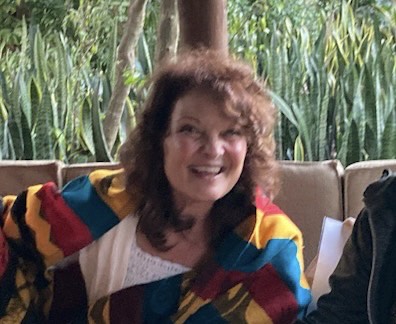SEE YOUR WRITING WITH CLARITY
Brilliant writing is all for naught without a story that keeps readers reading.
As a story coach and specialist in commercial fiction, I work with books driven by characters and resting on a framework of dramatic conflict and plot in the Western storytelling tradition.
Everything starts with the story.
Developmental editing is big-picture editing that addresses story and characters. It’s often called story editing because it primarily address the story and the storytelling (the way you’ve chosen to tell it). You’ll also hear it called structural editing or content editing.
Developmental editing does the same thing for your story and storytelling technique that line editing and copyediting do for your writing. It addresses the story itself, including story structure and plot, point of view, characterization and character arc, themes, worldbuilding and setting. It also covers narrative technique including dialogue, dramatic tension, exposition, description, balancing narrative modes, transitions, hooks, and scene structure.
Every editor handles things their own way. Some might discuss your book’s genre and marketability in an edit or critique, while others focus strictly on the story and narrative techniques. Before you compare apples to oranges, ascertain exactly what any given service includes—and remember, developmental editing does not address grammar, spelling, or punctuation.
Editing is an investment in your book today
and your writing career tomorrow.
Do any of these sound like you?
- You’ve done everything you know how to do to this story, but you’re not sure if the plot and characters are actually working.
- Your early readers aren’t falling in love with your book, or they’re confused or bored—and you’re not sure what to do about it.
- You’ve finished one or more early drafts, and you’re not fully satisfied. Something’s not there yet.
- You know there are problems with the plot or characters, but you don’t know how to fix them. (If the issues are significant, coaching may be a more effective solution than editing.)
- You’ve never had a developmental edit or critique on a full manuscript.
- You’re preparing to submit your manuscript to an agent, publisher, or writing contest.
- This is your first completed manuscript.
Developmental Editing
Developmental editing provides comments and tracked changes n the manuscript, covering recommended edits and suggested author revisions. You’ll also get a separate editorial report with further details.
Manuscript Critiques
Manuscript critiques report on the story’s strengths and weaknesses; there’s no direct feedback on the manuscript pages themselves. Full critiques include a full editorial report; partials offer feedback in a follow-up video or call.
Partial Edits & Critiques
Partial edits or critiques and outline reviews tackle smaller parts or excerpts of your book, allowing you to apply that feedback to the rest of the manuscript. It’s quick and economical way to get ahead of any issues.
Establish your craft and your reputation.
I strongly recommend developmental editing for all debut writers. I also recommend development editing for books over 80,000 words, literary-leaning fiction such as upmarket or book club fiction, and any story with a complex plot or structure.
In today’s competitive publishing marketplace, you can’t afford a weak start. If you aspire to be traditionally or hybrid-published, developmental editing gives your manuscript a better shot at making it out of the agent’s slush pile. If you’ll be self-publishing, it helps ensure you’re not launching your writing career with a lackluster story.
There’s more to writing commercial fiction than a lifelong love of reading or even an English degree imparts. If you’ve never had your manuscript under the microscope of an editor or agent, you simply don’t know what you don’t yet know about writing fiction. Developmental editing bridges the gap between where you are now and where you need to be as a published author.
WRITERS ARE SAYING
I knew not to go with a discount editor. What I didn’t know was how much more value I would get—even more than expected. I can’t imagine what I would be missing had I worked with someone else.
Through the entire process, she was patient while guiding me, challenging me, and supplying me with much-needed information to write and publish a story I’m proud of. I read that an editor’s job is to make the author look brilliant. Accomplished!
Please allow me to assess what services will be most beneficial for you and your book based on an initial assessment.
Pouring your time and editorial budget into editing a manuscript that’s not ready for prime time is a waste. I don’t want that for your book, and neither should you.
My initial assessment of your manuscript will help determine whether a manuscript critique or a developmental edit will be the best approach. Either way, I urge you to begin at the beginning: with your story. A manuscript critique or developmental edit will help you realize the potential of your book’s story and storytelling (plot, pacing, character arcs, themes, and narrative voice).
Read: Should you have your manuscript edited before submitting it to agents and publishers?
If you’re self-publishing, it’s up to you whether you’ll be producing your books to the same standards of quality of an established publishing house. To publish a professional-caliber book, you’ll need a full range of professional-caliber editing, at least when you’re getting started.
Your book is as unique as you are, and I don’t offer a one-size-fits-all fee or set range for editing. I’ll assess and quote your project individually, based on what sort of editorial help your book needs.
Developmental editing ranges from three cents ($0.04 USD) to six cents ($0.06 USD) per word.
Editing is most effective for fully revised manuscripts that have been reviewed by at least several outside readers who are not your friends or family. If your work is in an earlier stage of development, coaching could be a better fit.
Your book is ready for editing if you’ve developed the manuscript as far as you can on your own and with the help of peer feedback. This means more than reading through the manuscript a few times to check grammar and spelling, tweak dialogue, and massage a couple of scenes.
Here’s a more complete picture of what’s involved:
- The six-draft method of writing a novel
- Why you need a critique partner or group and how to find one
- Top 10 reasons to join a writing group
- How to revise your manuscript for professional editing
- Is your book ready for editing?
It’s a lot of work—I get it, I really do, and I’m ready and waiting for you at the end of that process.
If you’re a seasoned author who’s already mastered the techniques of storytelling and writing fiction, coaching might be overkill. But if you already know you’re struggling in a particular area, or early readers have told you they’re not following with the plot or connecting with the characters, why not go straight to the problem?
Book coaching is designed to help you develop a compelling story, then tell it in a way that readers can’t resist. We talk about your story idea itself and how it fits into today’s marketplace. We examine the techniques and creative choices you’ve used to tell your story. We work together to tune the plot, character arcs, and themes of the story.
Most of my established clients return for coaching before or after their first drafts. It’s an invaluable way to ensure a story is on track.
I love using the Accelerator prior to drafting a book. Based on my experience, it results in faster, cleaner drafting and reduced need for major revisions and edits. Reader reviews of my first Accelerator-planned book are a full star level higher than its predecessor, making it a valuable part of my process.—K.A. Wiggins
Line editing is available to established clients only. I am not currently accepting line editing or copyediting from new clients.
It’s easier to say what types of fiction I’m not currently accepting.
I am not currently accepting projects in:
– children’s fiction, including MG and YA– literary fiction (I do accept upmarket/book club fiction)
– memoir
– coming-of-age stories
– generational or family sagas
– short stories (including collections of linked short stories)
– nonfiction, self-help, or academic books
– narrative nonfiction
– stream-of-consciousness, slice-of-life, or experimental fiction
– RPG or gaming projects
– poetry
If your agent query is struggling to achieve liftoff, a consultation can help you identify what parts of your submissions package could be holding you back and tune it to get your manuscript in the door.
I’m not currently open for query and submission critiques.
Absolutely, although you may find everything you need on my success stories page or this account of how one client found the right editor.
Consider starting small.
Partial edits or critiques and outline reviews let you dip a toe into the water. Tackle smaller sections of your book, then apply the feedback to the rest of the manuscript.
New writers often do best starting smaller: a First Fifty Page edit, manuscript critique, or a Concept-to-Page evaluation. I also offer single coaching consultations, problem-busting and brainstorming sessions, month-to-month coaching, and other bespoke solutions. Get in touch and let’s talk about a solution that’s right for you.
Take the next step.

I work only with writers I believe I can help reach specific writing goals. If you’re ready to take action, get in touch. We’ll email a little about what you’re working on and what sort of help you’d like, and I’ll send you an assessment that helps us determine whether we would be a great fit working together.
My schedule for smaller critiques and partials is fairly flexible, but I accept a limited number of full edits per quarter. This is your chance to take a giant step forward.



